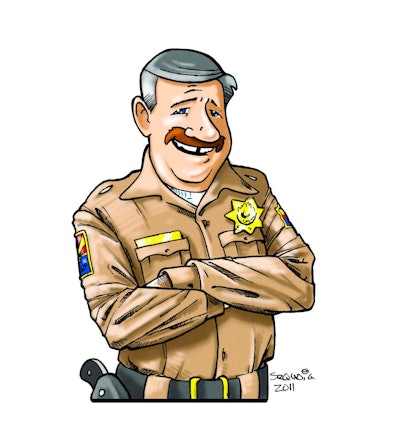 Illustration: Sequoia Blankenship
Illustration: Sequoia Blankenship
The other day the Sarge and I were driving to a conference in the Midwest while doing one of our favorite activities, listening to a techno-thriller. Our favorite author in this genre, Brad Thor, not only writes exciting novels, but very realistic ones as well. I've heard it called "fraction," half fiction, half fact. In this audio book, just before the protagonist proceeds to take out a group of Somali pirates, he remarks that even pirates sometimes suffer something he calls "normalcy bias." I'd never heard the term before, but it was obviously something very bad for the pirates and really good for our hero. As I often do when reading or listening to "fraction," I took time to look up this phenomenon.
I learned that "normalcy bias" causes an individual, a group, or even a government to interpret a critical incident or crisis situation with a dangerous amount of optimism. What's worse, when finally confronted with a crisis, those suffering from normalcy bias tend to woefully underestimate the possible negative impact of the crisis or disaster. Worse still, they often live with the assumption that, since the potential bad event has never happened to them before, it never will happen to them.
In law enforcement we control normalcy bias with training, training, and more training. We put ourselves in the context where we're constantly facing a variety of threats, like an active shooter, a traffic stop gone bad, or an officer ambush when serving a warrant. This not only permits us to see the bad event coming, but it gives us a mental model for successful resolution.
Another symptom of this phenomenon is our tendency to only see cues or symptoms that reaffirm our expectations that things are going to remain normal. One can say that we are at our greatest risk when everything seems great and we're just having a "routine" day. A great antidote to this is when you find yourself thinking how easy these domestics have become to handle. Ask yourself a simple question: "If one of these people wanted to hurt me, what could he or she do to accomplish that?" The cold slap of reality might prove to reveal a multitude of things because you've left yourself, and your co-workers far too vulnerable. Mentally rehearsing a bad act against you and then seeing yourself resolving it in your favor is a great way to give yourself a predisposition for immediate action, instead of a long mental lag time and potentially lethal hesitation.
Now I know that for all you former SEALs out there this is all old news. But for us veteran law enforcement trainers, I wonder how many police officer deaths and injuries we've attributed to "complacency" when they were actually the tragic result of normalcy bias. We've all seen videos of officers who were injured or killed while dealing with an ambiguous situation, like the old one of a father with his young daughter on a traffic stop.
As the video unfolds, the officer misses multiple threat cues like the assailant stating he has no weapons because he might use them and how he can't go back to jail. The officer misses these cues because the assailant talks lovingly about his daughter and jokes about how packed his minivan is. The officer only seems to react to the positive interactions, while seeming to ignore the negative signals. It's almost as if the officer is thinking, "Well I've never been brutally assaulted before so it certainly won't happen now." No one is surprised at the end of the video when the officer is violently attacked, unable to put up an effective defense. The fact that I've just told you this story will help you to deal more effectively with what may appear to be a low threat situation the next time you stop a family in a minivan.
Cops are in a conundrum. We have to find the happy medium between good preparation and overreaction. If you buy into the idea that the more normal things feel for you, the more danger you may be in so you need to start looking for threat cues, then you run the risk of seeing threats everywhere, all the time. This is another mental state known as "worst case scenario bias," but that, my dear crime fighters, is another column for another day.
Dave Smith is an internationally recognized law enforcement trainer and is the creator of "JD Buck Savage." You can follow Buck on Twitter at @thebucksavage.












